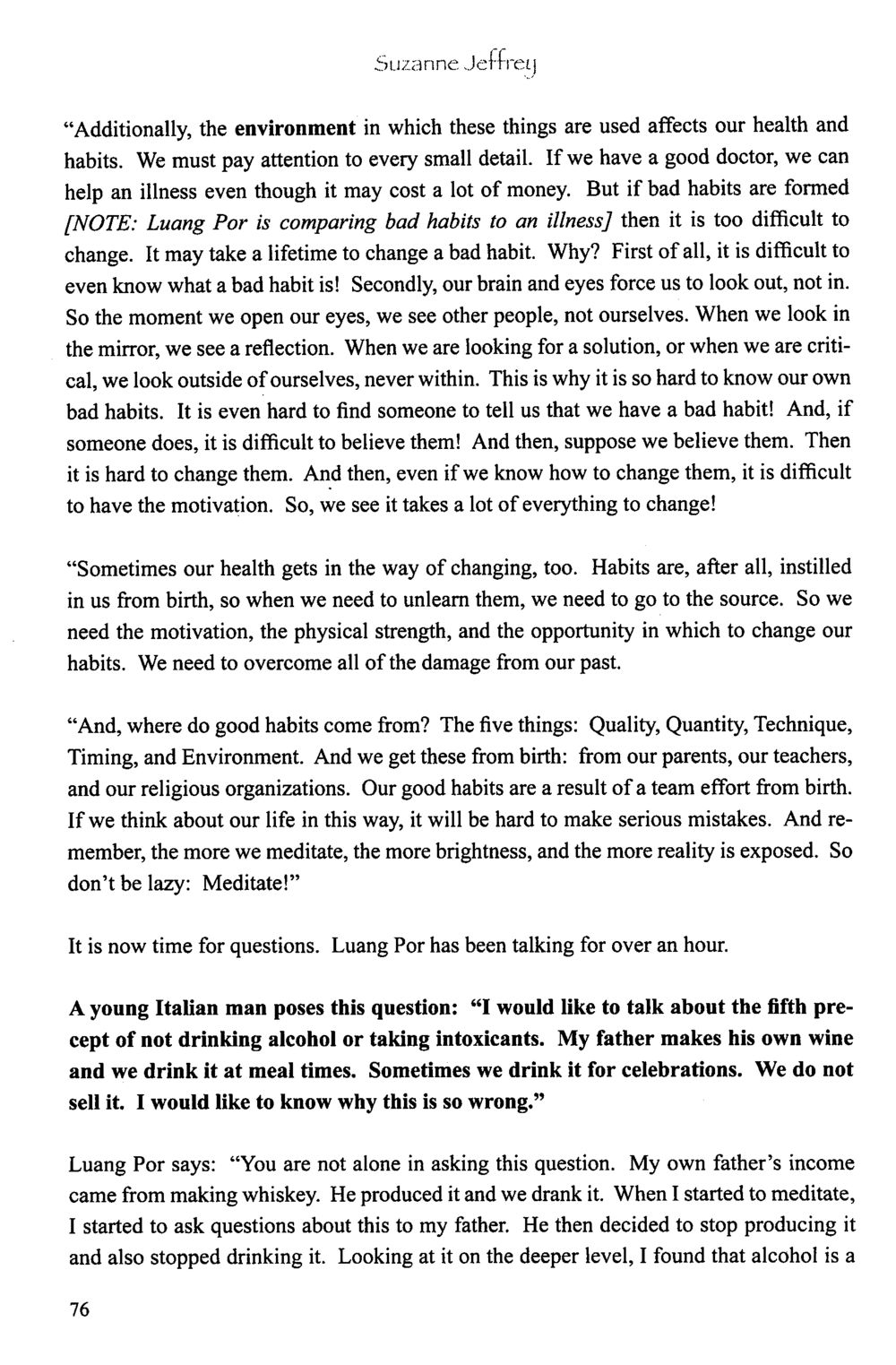Understanding Habits and Their Impact on Health : หน้า 78/164
The Meeting with a Dhamma Master : หน้า 78/164 Explore how habits affect our health and the challenges in changing them. Discover the importance of environment, personal reflection, and meditation in cultivating good habits.
0 ครั้ง

สรุปเนื้อหา
In this discussion, Luang Por addresses the difficulty of recognizing and changing bad habits, comparing them to an illness. He explains that bad habits are often ingrained from birth and influenced by our environment and upbringing. Changing them requires motivation, physical strength, and the right opportunities. Luang Por emphasizes the importance of quality, quantity, technique, timing, and environment in developing good habits, stating that these are often instilled through our parents and teachers. He suggests that meditation can aid in revealing the reality of ourselves, encouraging self-reflection and personal growth. A question from a young Italian man about the consumption of alcohol leads to insights about personal choices and deeper understanding of practices surrounding alcohol, demonstrating how family tradition can be re-evaluated in light of new beliefs and practices. Ultimately, Luang Por offers a comprehensive view of habit formation and change, emphasizing the collective effort needed to cultivate good habits and the role of meditation in this process. For more insights, visit dmc.tv.
หัวข้อประเด็น
-Impact of habits on health
-Challenges in changing bad habits
-Role of environment in habit formation
-Importance of self-reflection
-Meditation as a tool for personal growth
-Influence of upbringing on behavior
-Discussing alcohol consumption and personal choices
ข้อความต้นฉบับในหน้า
หน้าหนังสือทั้งหมด




































































































































































